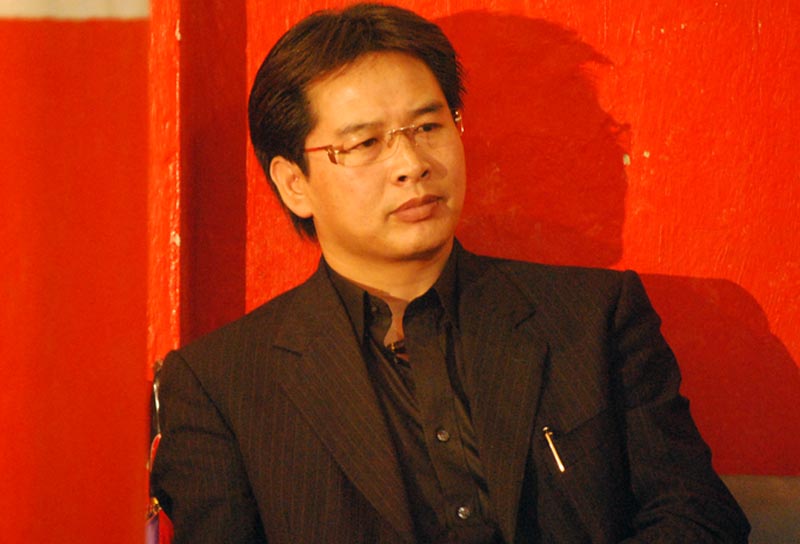 Dharamshala: Tenzin Lhudup, vice president of the Tibetan constituency in France, recently paid a visit to Dharamshala and shared with the Tibet Post his experiences and ideas about Tibetans' lifetsyle in France. Lhudup's opinions were backed by his authority as former singer and well-known business man from Paris, the French capital and one of the world's cultural epicenters, who additionally took part in the most of the political and cultural events there over the last 17 years and is working to further the development of the 700-person Tibetan community in France. He spoke about the important issues such as Tibetans' efforts to preserve the basic tenets of their identity: culture, customs, language, and religion.
Dharamshala: Tenzin Lhudup, vice president of the Tibetan constituency in France, recently paid a visit to Dharamshala and shared with the Tibet Post his experiences and ideas about Tibetans' lifetsyle in France. Lhudup's opinions were backed by his authority as former singer and well-known business man from Paris, the French capital and one of the world's cultural epicenters, who additionally took part in the most of the political and cultural events there over the last 17 years and is working to further the development of the 700-person Tibetan community in France. He spoke about the important issues such as Tibetans' efforts to preserve the basic tenets of their identity: culture, customs, language, and religion.Lhudup states that the official Tibetan Community in France is 30 years old, and its 13th executive order is currently in power. "I have been elected as an executive member four times, to represent Tibetan politics and religion. His Holiness should not have to bear the sole responsibility of reaching a solution to the Tibetan issue. It is every Tibetan's duty to be actively involved in Tibetan politics, religion, and the preservation of Tibetan culture. This is the primary duty of all executive members of the Tibetan Community in France."
The community was founded in the 1970's, when the first group of Tibetan refugees arrived in France, under the direction of the government-in-exile in Dharamsala. Sixteen Tibetan students ages eight to ten, were also sent to France for education around the same time. In total, around 30 Tibetans were living in France by 1982. Now, this community has grown to approximately 700, and the number of executive members has correspondingly increased from 10 to 12.
This rapid growth of the Tibetan population in France has allowed our community to thrive and develop into a center for collective action. For example, during the 2008 Olympic Games, thousands of French and Tibetan supporters showed up to protest the Olympic Torch Rally.
Additionally, the executive board helps to preserve the native language and culture by offering classes to French-born Tibetan children and adults. Our 13th executive board has also created a website (http://www.tibetan.fr/ ) available in French, Tibetan, and Chinese to help highlight Tibet's situation at the international level.
There are around 30 Tibetan restaurants and shops throughout France. The Tibetan community is thriving on its own, which is demonstrated by the very small percentage of residents who accept refugee aid from the French government.
His Holiness the Dalai Lama always emphasizes the importance of preserving Tibetan culture, religion, and especially language. When asked how the executive board is carrying out this mission, Lhundup responded with a reminder that, "This is not the sole duty of our executive board. Even though we are providing Tibetan classes to our community, it is mainly the parents' duty to ensure that their children are practicing the Tibetan language at home. Some parents have done a good job of fulfilling this duty, and others have failed; as a result, their families were isolated from the Tibetan community. Later, this situation improved as parents realized the importance of connecting with the rich Tibetan Community in France."
Edited by Amy Elmgren The Tibet Post International


![Tibet has a rich history as a sovereign nation until the 1950s when it was invaded by China. [Photo: File]](/images/stories/Pics-2024/March/Tibet-Nation-1940s.jpg#joomlaImage://local-images/stories/Pics-2024/March/Tibet-Nation-1940s.jpg?width=1489&height=878)















